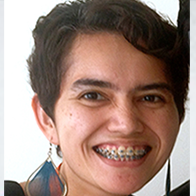It was on Old Girls Day at my alma mater in 1998 when I had my first encounter with the word HIV. As part of the day's programme, Malaysian AIDS Council (MAC) conducted an awareness talk about the virus & its routes of transmission; and we young girls in an all-girls’ school finally found the avenue to talk about THE topic openly: sex. Why my memory is selective to this particular day can be attributed to the fact during the awareness talk, Marina Mahathir handed me a piece of paper that read "HIV-positive".
While the situation was theoretical, I remembered thinking that I didn’t want to read that. Back in 1998, HIV/AIDS was still perceived as a disease that spelled death. But progress in the HIV world over the past 31 years since its discovery by Françoise Barré-Sinoussi and Luc Montagnier now tells a completely different story.
People who are HIV-positive now can expect a life expectancy similar to the general population. They can have jobs, marry, have children, and a higher number now no longer die of AIDS or AIDS-related illness. This is due to the success of antiretroviral therapy (ART). And while patients need to be on treatment for life, first-line ART is free, the drugs now come combined in one pill making it easier to take the medication, and healthcare in general has improved tremendously.
Compared to dengue and bird flu, it is relatively easier to manage HIV and prevent newer infection. Understanding the routes of transmission of the virus can create enough awareness for the public to reduce the risk of contracting HIV. There are free screenings at government hospitals and health clinics, and there are also NGOs, namely PT Foundation, that provide anonymous testing and pre and post-test counselling.
The 2013 Ministry of Health data placed HIV prevalence in Malaysia as <0.5%, yet 3,393 new HIV cases were reported in that same year, and that number is still too many to ignore. Furthermore, the success of the Harm Reduction Programme initiated in 2006 by providing clean needles and methadone therapy to injecting drug users have halved the HIV numbers in this population; but now resulted in a shifting trend where more cases of new HIV infections are reported to be via sexual transmission, and highest among heterosexuals (i.e. straight individuals), and women [1].
This shifting trend highlights the fact that as Malaysians, we generally do not want to talk about sex, or anything considered taboo for that matter. Let's admit it, as a society, we tend to devalue those who use drugs, prisoners, men who have sex with men, transmen and women, those forced into sex work, and those who have sex outside of marriage for having contracted HIV, stating that “it’s their fault”, and “they should be punished”. Worse, we sweep these issues under the carpet, and in our ignorance, we think that HIV will never impact us, or our loved ones.
From that 15-year-old girl who felt scared and upset with her hypothetical HIV status, I am now a scientist who deals with HIV samples and research on an almost daily basis. A few months back, I decided to meet my "samples", and that was the most eye-opening decision I made. These people are human beings like you and me, somebody's family member, all just trying to survive in this country. Those figures we public health advocates spew are actual human beings, with a name, a body, a soul. The biggest lesson I learnt was to not judge, remove all stigma about how they got infected, but to care about how they can live as healthily as everyone else. It is my job to understand the disease and to provide suggestions as to how to better manage it; because someone somewhere whom I care so much about might be affected by it.
As a society, we Malaysians almost always have a skewed focus. We always see things as "not our problem". We internalise the fact that all of us have sex, thus run the risk of contracting HIV. We care more about judging people for their choices, who they sleep with or whether they are sleeping outside of marital bonds as if a marriage certificate or akad nikah can stop infidelity and one's sexual desires. We care more that people "chose" to be addicted to drugs rather than helping those who have been jailed for drug offenses return to society and be able to rebuild their lives. Prof Adeeba Kamarulzaman mentioned in her speech at the World AIDS Day event on Saturday that the wards are still as full today as it was in the 1990s, showing that due to stigma, people are not coming forward to get tested and treated; only coming in when they are too sick. Hisham Hussein of PT Foundation & MAC said it best at the same event, "Stigma and discrimination kills the person, not the virus."
By increasing our own awareness about HIV, and choosing to view marginalised communities as fellow human beings without any moral prejudice, we can achieve zero new infections, zero deaths, and zero stigma. The cure to HIV lies not only in science and medical discoveries, but rather in human relationships. There is still much work to do for those of us in the field, but without support by the public and policymakers there will be no cure. – December 3, 2014.
[1] 2013 Annual Report, Malaysian AIDS Council.
* This is the personal opinion of the writer or publication and does not necessarily represent the views of The Malaysian Insider.


Comments
Please refrain from nicknames or comments of a racist, sexist, personal, vulgar or derogatory nature, or you may risk being blocked from commenting in our website. We encourage commenters to use their real names as their username. As comments are moderated, they may not appear immediately or even on the same day you posted them. We also reserve the right to delete off-topic comments